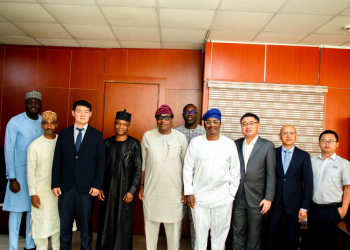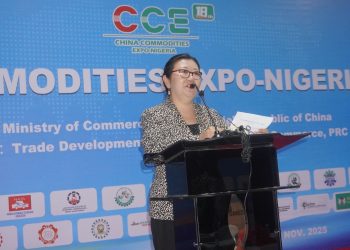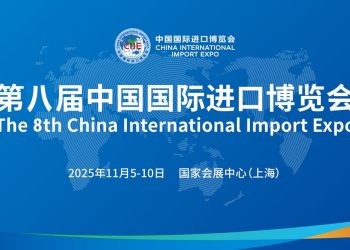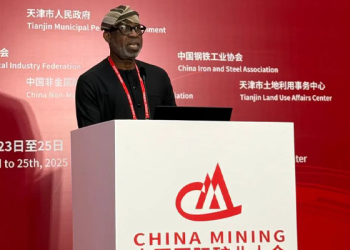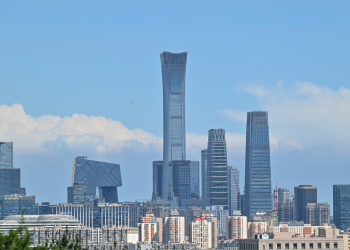Suspended by steel cables, various vehicle parts including chassis, doors and wheels of a Tesla Model Y, hangs in mid-air, roughly forming the car’s final shape.
These disassembled components of the car are displayed at the U.S. car company’s booth at the ongoing China International Supply Chain Expo (CISCE) in Beijing.
Tesla is part of the smart vehicle exhibition section in the expo, which also features four other exhibition sections, namely green agriculture, clean energy, digital technology and healthy life. These sections highlight some of the rapidly developing sectors of China’s supply chain that present opportunities to the world.
“China’s manufacturing industries have been transformed and upgraded in recent years to become more digital and green, enhancing the stability and competitiveness of its industrial development while lowering the relative carbon footprint,” said Alf Barrios, chief commercial officer of Rio Tinto, a leading global mining group.
Barrios said China is leading green technology development in multiple areas globally and the company sees great potential for further collaboration.
During the expo, automaker Volvo signed a memorandum of understanding with Yunnan Aluminum Co., Ltd. to advance the usage of low-carbon aluminum in its supply chain.
Harry Li, vice president in procurement & logistics of Volvo Car Asia Pacific, said the company is eyeing opportunities as Chinese suppliers have significantly enhanced their capabilities in recent years thanks to the rapid development of intelligent and electric vehicles.
According to a report on overseas businesses’ perspective on China released by HSBC earlier in November, China maintains a central position in the global supply chain. About 73 percent of the surveyed companies anticipate expanding their supply chain footprint in China over the next three years, with a quarter of the companies expecting a significant increase.
Speaking at the opening ceremony of the expo, Sir Sherard Cowper-Coles, chair of the China-Britain Business Council, noted that the trade volume between China and Britain is at an all-time high and that British pharmaceutical company AstraZeneca has invested over 1 billion dollars in China this year alone.
“I’m proud of the scale and quality of the British investment here in China,” said Cowper-Coles.
At the CISCE, the proportion of exhibitors from overseas reached 26 percent. Companies from the United States and Europe accounted for 36 percent of the total number of foreign exhibitors.
Despite the rhetoric of so-called “de-risking” touted by some Western politicians, foreign firms remain confident in the country’s supply chain.
American industry giant GE Healthcare and China National Pharmaceutical Group Corporation jointly launched a new brand focusing on high-end medical imaging equipment R&D and manufacturing during the expo.
“Over the past 30 years, as GE Healthcare’s business footprint in China has expanded, we have gained more confidence in investing more sustainably in China,” said Zhang Yihao, president and CEO of GE Healthcare China.
“We see great resilience in Chinese enterprises and have tremendous confidence in them. We also hope to continue to support them in their continued expansion and exploration of new frontiers,” said Jean Lu, deputy chief executive officer of Standard Chartered Bank (China) Limited.






























